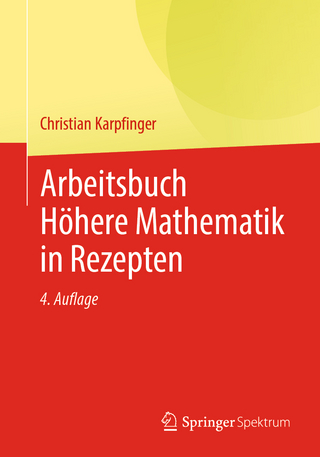
Basic Category Theory
Seiten
2014
Cambridge University Press (Verlag)
978-1-107-04424-1 (ISBN)
Cambridge University Press (Verlag)
978-1-107-04424-1 (ISBN)
Assuming little mathematical background, this short introduction to category theory is ideal for beginning graduate students or advanced undergraduates learning category theory for the first time. Suitable for independent study or as a course book, it gives extensive explanations of the key concepts along with hundreds of examples and exercises.
At the heart of this short introduction to category theory is the idea of a universal property, important throughout mathematics. After an introductory chapter giving the basic definitions, separate chapters explain three ways of expressing universal properties: via adjoint functors, representable functors, and limits. A final chapter ties all three together. The book is suitable for use in courses or for independent study. Assuming relatively little mathematical background, it is ideal for beginning graduate students or advanced undergraduates learning category theory for the first time. For each new categorical concept, a generous supply of examples is provided, taken from different parts of mathematics. At points where the leap in abstraction is particularly great (such as the Yoneda lemma), the reader will find careful and extensive explanations. Copious exercises are included.
At the heart of this short introduction to category theory is the idea of a universal property, important throughout mathematics. After an introductory chapter giving the basic definitions, separate chapters explain three ways of expressing universal properties: via adjoint functors, representable functors, and limits. A final chapter ties all three together. The book is suitable for use in courses or for independent study. Assuming relatively little mathematical background, it is ideal for beginning graduate students or advanced undergraduates learning category theory for the first time. For each new categorical concept, a generous supply of examples is provided, taken from different parts of mathematics. At points where the leap in abstraction is particularly great (such as the Yoneda lemma), the reader will find careful and extensive explanations. Copious exercises are included.
Tom Leinster has held postdoctoral positions at Cambridge and the Institut des Hautes Études Scientifiques (France), and held an EPSRC Advanced Research Fellowship at the University of Glasgow. He is currently a Chancellor's Fellow at the University of Edinburgh. He is also the author of Higher Operads, Higher Categories (Cambridge University Press, 2004), and one of the hosts of the research blog, The n-Category Café.
Note to the reader; Introduction; 1. Categories, functors and natural transformations; 2. Adjoints; 3. Interlude on sets; 4. Representables; 5. Limits; 6. Adjoints, representables and limits; Appendix: proof of the General Adjoint Functor Theorem; Glossary of notation; Further reading; Index.
| Reihe/Serie | Cambridge Studies in Advanced Mathematics |
|---|---|
| Zusatzinfo | Worked examples or Exercises |
| Verlagsort | Cambridge |
| Sprache | englisch |
| Maße | 156 x 235 mm |
| Gewicht | 400 g |
| Themenwelt | Mathematik / Informatik ► Mathematik ► Algebra |
| Mathematik / Informatik ► Mathematik ► Logik / Mengenlehre | |
| ISBN-10 | 1-107-04424-3 / 1107044243 |
| ISBN-13 | 978-1-107-04424-1 / 9781107044241 |
| Zustand | Neuware |
| Haben Sie eine Frage zum Produkt? |
Mehr entdecken
aus dem Bereich
aus dem Bereich
Buch | Softcover (2022)
Springer Spektrum (Verlag)
CHF 55,95


